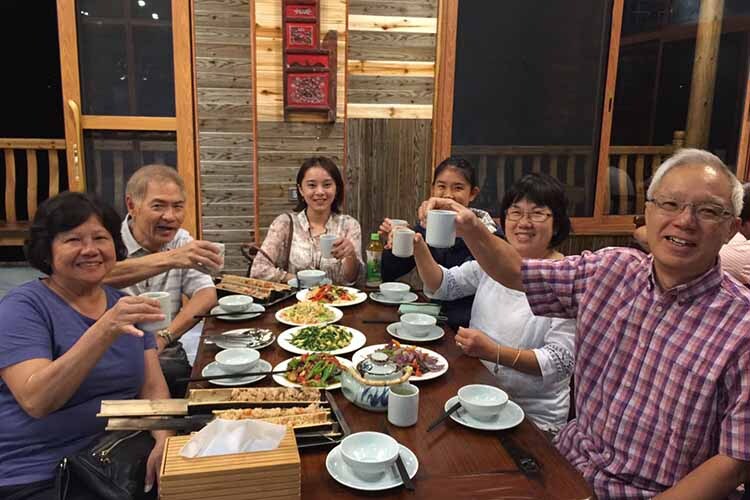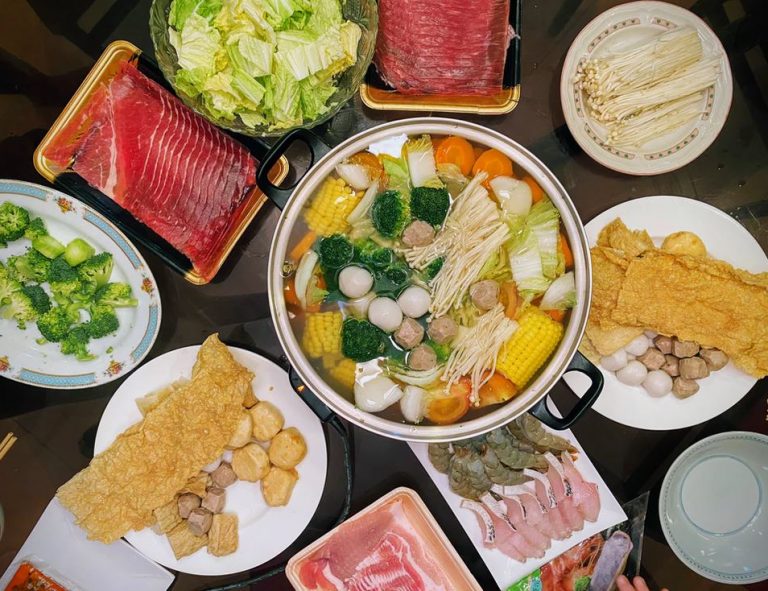20 Great Pieces Of Advice To Authentic Tastes of China
20 Great Pieces Of Advice To Authentic Tastes of China
Blog Article
Top 10 Tips On Shopping In The Street Markets In China
1. Start early and visit the markets early in the morning, when vendors are preparing and could provide better bargains for their first sales.Pro: Early shopping can result in better bargaining and an increased selection of choices.Cons: Early mornings might not be suitable for everyone.
2. Bring CashTip: Many street market vendors prefer cash, however mobile payment options like WeChat Pay or Alipay are becoming more popular.The benefit of cash payments is that it helps transactions run more smoothly and also gives you negotiating leverage.Con: Carrying money can increase the chance of theft or loss in areas with high traffic.
3. Learn Basic MandarinYou can use phrases such as "Zhege duoshao Qian?" to ask how much something costs. Knowing phrases such as "Zhege duoshao ba" ("How much is this?") or "Pianyiyidian ba?" (Can you lower the cost?) Effective communication is important.Pro: Builds rapport with vendors, and shows appreciation for local culture.Con: Limited vocabulary can lead to confusion.
4. Inspect goods with careBe sure to look for any imperfections or flaws, particularly on electronics, clothing and handicrafts.Pro: Makes sure you're getting the product for which you're paying and avoids disappointment.Pro: This could be time-consuming and cause annoyance to the vendors.
5. Shop with ConfidenceDo not be afraid to bargain. It's a standard to do so in all market stalls. Start by reducing the price 50-70 percent.Pro: Bargaining is a great way to lower expenses.Cons: It can be intimidating for people unfamiliar with the process.
6. Beware of fakesBags, watches, and electronics that bear a brand name could be fake.Pro: It helps save the cost of buying cheap counterfeits.Con: Genuine goods can be difficult to find and are more expensive.
7. Local Customs to Be RespectedTip: Watch how locals shop, negotiate, and interact with vendors to adapt your approach.You can avoid cultural mistakes by mixing in.Con: It can take time to learn the habits.
8. Keep Valuables SecureTip: Avoid pickpockets with anti-theft bags, and keep mobile phones and wallets in safe pockets.Reduces theft risk in high-traffic areas.Cons: Extra precautions can make you feel uncomfortable or restrictive.
9. Taste before buying (Food)To make sure you're receiving the highest quality product Food vendors often provide sample snacks and dried products.Pro tip: Make sure that you are satisfied with the taste and freshness of your food.Con: Some vendors may make you buy after offering a sample.
10. Know the Market ConcentrateTip: Every market has a specialty for example, such as the Yuyuan Market in Shanghai for souvenirs, or Panjiayuan in Beijing for antiques. Make sure to research before you go shopping so that it matches your shopping preferences.Focusing on the right things and saving time.Pro: It limits spontaneity if you stick strictly to your studies.
Pros of Shopping in Street MarketsUnique Discoveries: There are many things aren't found in traditional stores including handmade products and snacks from the local market.Street markets are usually less expensive than shopping malls and other shops.Cultural Experience: Interacting with local vendors and exploring the market can be a great way to get a feel for the tradition.One market will have everything from clothes to food and souvenirs.Pros and cons of shopping in street marketsCounterfeit products: A high probability of encountering copyright or low-quality items.The crowds at markets can be extremely crowded, especially during holidays or weekends.Vendor pressure Some vendors employ ad hoc sales tactics that can overwhelm the experience.There are no returns: Most purchases are considered final and there is no recourse for exchanges or refunds.By following these tips and being well-prepared, you can enjoy China's bustling markets and making sure you avoid common pitfalls. Read the top journey through China food culture for website tips including China food heritage revealed, China culinary heritage, a guide to China food scene, China food heritage revealed, a guide to eating like a local in China, savor the flavors of China, delicious Chinese dishes to try, authentic tastes of China, discover Chinese street food, China culinary hotspots and more.
Top 10 Tips For Dining Etiquette And Manners In China
1. Tip Be patient and wait for your server or host to direct you to the seating arrangement.Pro: Respects the host's authority and respects their position.Con Cons: In informal settings, the host may not be always in the clear, causing confusion.
2. Use chopsticks in a safe manner.It is not recommended to put chopsticks in the air when eating rice. It looks like an act of mourning. If you don't want to use chopsticks, put them in the chopsticks holder or place them flatly on the bowl or plate.Pro: Prevents accidental disobedience.Con: Learning proper chopstick etiquette might take practice for beginners.
3. Respect EldersThe person with the most experience or age is the one to eat first. Traditionally, they are served first.Pro: Respects traditional family hierarchies and social structures.Con: In casual environments, this habit can appear unnecessary or omitted.
4. Share DishesChinese meals are shared. Every dish is placed together so that everyone has a chance to share. Do not eat the last meal unless you're offered it.Pro: Promotes an experience that is shared and creates a sense of community.Con The con: If sharing isn't your thing, you could be limited in the food you can consume.
5. Avoid Wasting FoodTips: Eat only what you can eat, as leaving food on your plate could be viewed as unclean or inconsiderate.Pro: Shows appreciation to the host for their effort.Con: Underestimating your appetite can make it difficult to finish the meal.
6. Toast properlyTips: When toasting other guests, place your glass slightly lower than the glasses of respected or senior people to show respect.Pro: Shows politeness.Con: It may be difficult to remember when you are in large groups and have multiple toasts.
7. Don't Reverse FishTipp in the southern part of China it's considered bad luck to flip a fish once you've eaten the single side. This represents the possibility of a boat capsized.Pro: You won't offend regional superstitions.Con Contra: This custom is not applicable to northern China.
8. Both of them are OkayTip: Slurping noodles or soup is often considered to be a sign of appreciation, not rudeness. It is also acceptable to burp in the course to thank the chef.Pro: Allows you to relax and enjoy your meal without stressing about Western ways of eating.Cons: It could be uncomfortable if the idea isn't in line with your norms of culture.
9. Do not point at people using ChopsticksTip: It's considered rude to use chopsticks to gesture or to point. Only use chopsticks for eating.Pro: Maintains a respectful dining environment.Con The problem is that it's easy to overlook this rule in lively conversations.
10. The Bill Payment Process: Who is Responsible?In China, hosts usually insist on the payment of meals. Make an offer but be prepared for the host to resist.Pro: Expresses appreciation for the kindness of the host.Cons: Overly insisting on something can seem unsincere and unprofessional.
Pros of Following Dining Etiquette in ChinaRespecting the local culture: Being respectful of customs can foster goodwill between the people living there.Social Bonding. The practice of observing traditional values can create an appreciation and a sense of belonging.Avoids Missteps: Proper etiquette helps you navigate unfamiliar dining situations smoothly.The real experience: Genuine experiences enrich the overall experience.Pros of Following the Dining Etiquette in ChinaComplex Rules: The plethora of customs can be overwhelming for newcomers.Regional Variations: Etiquette norms can differ between regions, causing potential confusion.It can be time-consuming to keep up with formalities. This can cause delays in the start of the meal.Hand Gestures that aren't commonly used Certain methods, such as using chopsticks in a proper manner, require the effort.If you keep these guidelines with these in mind, you'll be in a position to master Chinese dining manners with confidence and have a fun and respectful experience both for yourself and your hosts. Check out the most popular savor China regional food specialties for blog advice including China famous food destinations, the ultimate guide to Chinese cuisine, savor China regional food specialties, Chinese food you must try, China flavorful food culture, tasty delights from China, a guide to China food scene, famous foods in China cities, a tour of China regional cuisine, explore local Chinese cuisine and more.